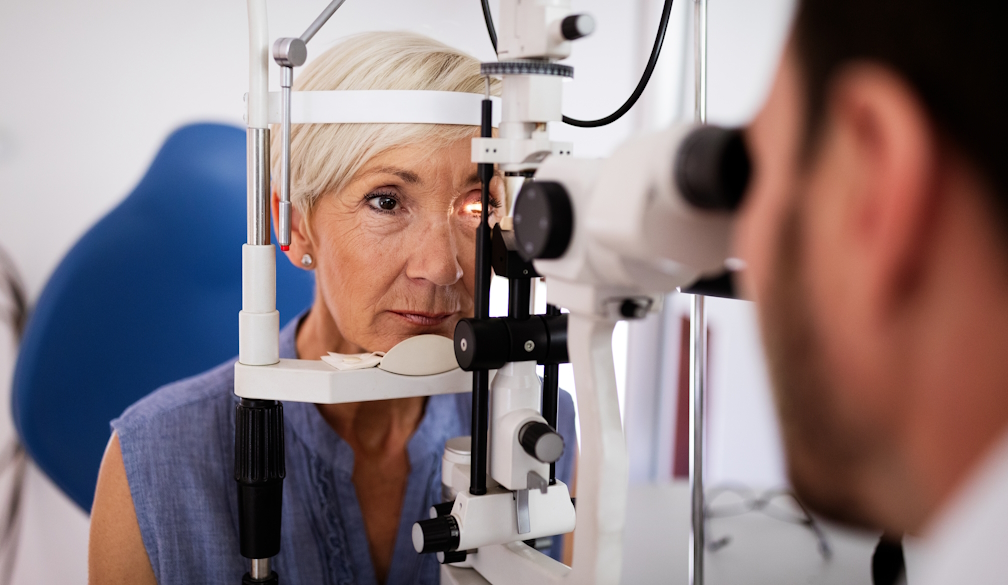10 Tips to Maintain Eye Health in the Digital Age

Are you spending more time staring at screens than ever before? In today's digital age, our eyes are constantly bombarded with blue light emitted from computers, smartphones, and tablets. This prolonged exposure can lead to various eye problems, including strain, dryness, and long-term damage.
Adopting simple yet effective habits is essential to ensuring your eyes stay healthy and comfortable. This article will share practical tips to help you protect and preserve your vision in the face of increasing screen time.

1. Follow the 20-20-20 Rule
The 20-20-20 rule is one of the simplest and most effective ways to reduce eye strain in the digital age. Eye muscles can become fatigued when focusing on a screen for prolonged periods. This technique involves taking a break every 20 minutes by looking at something 20 feet away for at least 20 seconds. This short break allows your eyes to relax and refocus, preventing the discomfort and strain that can result from continuous screen use. However, if you're looking for more ways to protect your eyes, consulting professionals like EyeQ Optometrists can help you find solutions tailored to your needs.
2. Blink Regularly
When we use digital screens, our blink rate decreases significantly, leading to dry eyes, irritation, and discomfort. Blinking is essential because it spreads tears evenly across the eye's surface, keeping it lubricated. To combat dryness, make a conscious effort to blink more frequently when using screens. Maintaining proper eye moisture levels is crucial to preventing long-term discomfort and potential damage.
3. Use Proper Lighting
The lighting in your workspace plays a crucial role in preventing eye strain. Harsh lighting, whether from overly bright lights or glare from a window, can force your eyes to work harder. On the other hand, dim lighting may cause you to squint, leading to fatigue. The best approach is to use soft, ambient lighting that reduces glare and reflections on your screen. Position your light source behind or beside your screen to minimize direct glare and help create a more comfortable environment for your eyes.
4. Adjust Screen Brightness
Your screen’s brightness should be comfortable to look at, meaning it should align with the lighting in your surroundings. If your screen is much brighter or dimmer than the room, your eyes will strain to compensate for the contrast. Adjust the brightness settings of your monitor, smartphone, or tablet to match the ambient lighting. This minor adjustment can prevent unnecessary eye fatigue and make long hours in front of screens more bearable.
5. Position Your Screen Properly
Ergonomics plays a vital role in good eye health. The position of your screen can significantly impact the strain on both your eyes and neck. Ideally, your screen should be at least an arm’s length away from your face, and the top of the screen should be at or just below eye level. This position allows your eyes to naturally look slightly downward, reducing strain on your eye muscles and neck.
6. Reduce Blue Light Exposure
Exposure to blue light emitted by digital screens contributes to digital eye damage and can disrupt your sleep cycle, especially when exposed late in the day. To minimize the impact of blue light, you can enable the ‘night mode’ or ‘blue light filter’ on your devices, which changes the screen's colour temperature to warmer tones that are less harsh on the eyes. Alternatively, blue light filtering glasses can be worn while using digital devices.
7. Take Regular Breaks
Sitting in front of a screen for hours without a break can lead to eye strain, headaches, and even back and neck pain. To avoid these issues, it is important to take regular breaks throughout the day. Step away from your screen every hour or so and engage in a different activity that doesn’t involve focusing your eyes on something close, like reading or typing. Walk around, stretch, or close your eyes for a few moments.
8. Maintain Good Posture
Good posture is important for your spine and joints and also for your eye health. Sitting slouched or with your head tilted too far forward or backward can strain your neck, shoulders, and eyes. To maintain good posture, sit upright with your feet flat on the ground and your back fully supported. Your screen should be positioned at a comfortable distance and height to prevent the need to hunch over or strain your neck.
9. Stay Hydrated
Hydration is essential for overall health, including your eyes. When dehydrated, your body may produce fewer tears, leading to dry, irritated eyes. This is particularly relevant for people who spend much time in front of screens, as digital eye strain often involves dry eyes. Ensure you drink enough water throughout the day to keep your body and eyes well-hydrated.
10. Schedule Regular Eye Exams
Even if you don’t currently have vision problems, it’s important to schedule regular eye exams, especially if you spend a lot of time using digital devices. Eye exams help detect potential issues early on and ensure your prescription is up-to-date. If you're experiencing symptoms of digital eye strain, such as headaches, blurred vision, or dry eyes, an eye doctor can recommend solutions, like computer glasses or special lenses that filter out blue light.
Conclusion
Incorporating these tips into your daily routine can significantly improve your eye health and reduce the adverse effects of excessive screen time. Remember, taking proactive steps to protect your vision is crucial in today's digital world. So, make it a priority to prioritize your eye health and enjoy clear, comfortable vision for years to come.






